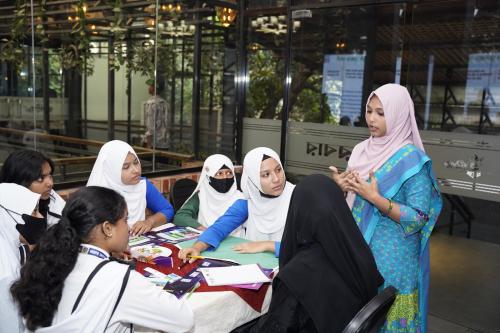

11:00 am EST - 12:00 pm EST
Past Event
Too many children lose their love of learning as they progress through school. A recent survey of over 65,000 students in the U.S. shows that in third grade 75 percent of students say they love school, but by the time they reach 10th grade, only 25 percent say the same.
For the past five years, award-winning journalist Jenny Anderson and Brookings Institution expert Rebecca Winthrop have been investigating why so many children lose motivation in school during adolescence. In their new book “The Disengaged Teen: Helping Kids Learn Better, Feel Better, and Live Better,” they weave extensive original research with real-world stories of kids who transformed their relationships with learning. They identify four modes of learning that students use to navigate through the shifting academic demands and social dynamics of middle and high school, shaping internal narratives about their skills, potential, and identity. Ultimately, they argue that student engagement can no longer be overlooked because it is essential to help young people thrive in the educational shift from the “age of achievement” to the “age of agency” where young people will need to navigate an increasingly complex and AI driven world.
On January 14, the Center for Universal Education at Brookings hosted a discussion moderated by New York Times journalist Jessica Grose on the scope of the disengagement crisis and what families and educators can do to address it.

Moderator


Jennifer L. O’Donoghue, Christine Apiot Okudi, Ellen Chigwanda, Adefunke O. Ekine, Dasmine Kennedy, Joyce Kinyanjui, Pamhidzayi Berejena Mhongera, Sumbal Naveed, Mary Otieno, Jamila Razzaq, Atenea Rosado-Viurques, Nasrin Siddiqa, Tran Thi Ngoc Tran
June 30, 2025

Jennifer L. O’Donoghue
June 30, 2025

Pamhidzayi Berejena Mhongera, Ellen Chigwanda, Atenea Rosado-Viurques, Jennifer L. O’Donoghue
June 30, 2025